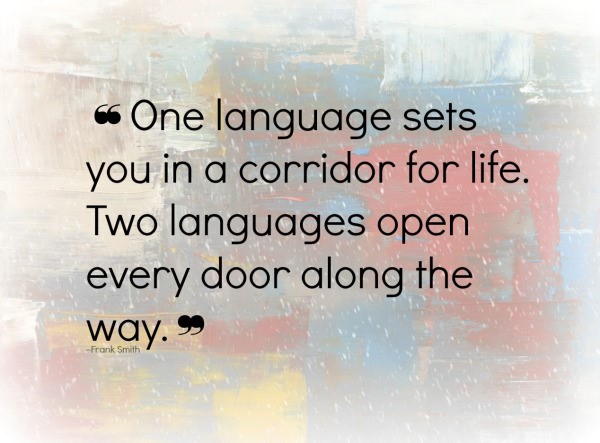Department:
Miss M Davies - Head of Department
Mrs A Price
Mr D Farr
Mrs N Rowlands
To contact a member of staff please email post@bromorgannwg.org.uk
Twitter: @ieithoeddyfro


KS3 (Year 9)
|
9 Spanish |
Autumn |
¡Hola! ¿Cómo eres? Learning how to introduce ourselves in Spanish as well as stating our opinion. Describing ourselves and others while developing a deeper understanding of triple literacy.
|
|
|
Spring |
Los Deportes y Mis Pasatiempos We will be able to discuss the advantages and disadvantages of sports and leisure activities by using the present, past and future tense.
|
|
|
Summer |
La Comida Increase our awareness of Spanish culture through learning about traditional Spanish food. We will be able to discuss the advantages and disadvantages of health food and junk food confidently. Using the conditional whilst discussing our ideal meal.
|
KS4 (Year 10-11)
The courses provide a foundation for the further study of languages in the sixth form. The Modern Foreign Languages Department has a proven track-record of achieving excellent GCSE results with pupils of all abilities.
|
Business |
Transport and travel |
|
Manufacturing |
Public and social services |
|
Banking and finance |
Administration |
|
Commerce |
Education |
|
Hotels and restaurants |
International Organisations |
|
Health |
|
Studying Spanish to GCSE level will increase the pupils’ awareness of Europe and their skills will enable them to contribute to the world-wide economy.
By following a GCSE course in Spanish it is envisaged that:
• the pupils enjoy the positive experience of learning a foreign language
• the development of the pupils’ interpersonal skills will continue as the pupils benefit from the department’s interactive learning and teaching styles established contacts between the department and pupils in Spanish speaking countries will be further developed
• the pupils will be able to use Spanish naturally in practical situations
• an insight will be given into the culture and civilisations of countries where Spanish is spoken, by means of class-work and educational visits
• a positive attitude towards learning foreign languages and towards foreign language speakers will be encouraged
• the pupils’ awareness of the nature of language learning and various study skills will be developed • the pupils’ information technology and communication skills will be developed as use is made during the GCSE courses of the internet, e-mail, web cam, specific software packages, video and satellite television.
Content of the GCSE Spanish Course
The pupils will learn how to discuss various aspects of their daily lives through the medium of Spanish. They will be trained to cope in tourist situations and in the world of work abroad. It is also expected that they will learn about world-wide issues.
The thematic units of the GCSE courses in Spanish are as follows:
• IDENTITY AND CULTURE
• WALES AND THE WORLD
• CURRENT AND FUTURE STUDY AND EMPLOYMENT
Within the department, a wide range of teaching and learning strategies are implemented in order to nurture the pupils’ enjoyment and confidence in the foreign language.
Assessment
The four language skills will be examined in Spanish. The weighting for each skill is as follows:
UNIT 1 – SPEAKING 25%
UNIT 2 – LISTENING 25%
UNIT 3 – READING 25%
UNIT 4 – WRITING 25%
The nature of assessment within MFL has changed since September 2016. There are no longer any Controlled Assessment tasks to be completed. All skills are assessed in a final examination in year 11. The speaking component will be examined by the classroom teacher and will be marked externally by a WJEC marker.
Pupil who show promise in Modern Foreign Languages during year 9 should seriously consider studying both French and Spanish at GCSE. This will enable pupils to continue with language study further and studying two languages should no way be thought of as narrowing options.
Learning a language means acquiring a new skill which will stay with them for life, far beyond their GCSE examination study.
KS5 (Year 12-13)
Entry Requirements:
You should achieve at least grade B across all units of the Spanish GCSE course. You should have sat higher tier papers.
What is Spanish?
The Spanish A-level course is aimed at students who have a passion for languages and are interested in Hispanic culture. Studying Spanish at A-level will give you the opportunity to gain a wide range of linguistic skills including an extensive vocabulary and a range of grammatical structures. During the AS and A Level course students will have the opportunity to explore social issues as well as political, intellectual and artistic culture in the Spanish-speaking world. Spanish is a wellrecognised and academic subject that opens the doors to the world around you.
What will I learn whilst studying Spanish?
The lessons will include themed learning periods and class discussions to improve written work and oral skills. Grammatical work will be woven through all the lessons in order to improve the accuracy and understanding of the structure of the language. Pupils will be encouraged to use a wide range of resources including school units as well as sites such as Quizlet and Memrise. Oral, written and grammar tests will be carried out throughout the two years. During the course you will also broaden your awareness of Spanishspeaking countries by taking a closer look at the culture of these countries including studying Spanish literature and films and their contexts.
Course Content:
Theme 1: (AS) Living as a young person in a Spanish-speaking society
Theme 2: (AS) Understanding the Spanish-speaking world
Theme 3: (A level) Diversity and difference
Theme 4: (A-level) The two Spains: 1936 onwards
Possible careers:
Languages open doors to a wide range of careers within a variety of different fields such as law, education, publishing, recruitment and many more. There is a great shortage of people in the UK who can speak foreign languages, consequently studying a modern language at A Level is a relevant skill which prepares students for a wide variety of careers. It is also a skill that is seen as very attractive by universities and employers. Spanish is one of Europe’s most international languages which allows you to communicate in 22 countries around the World. If you choose to study Spanish at university you will have the chance to spend a year in one of these countries as part of your degree.
Pupil Comment: “I decided to take Spanish as one of my A-level subjects as I felt that having the ability to speak another language, and one of the most powerful languages in the world, opens so many doors for the future.” Ceri Vaughan-Jones
Link to the website of the course:
https://www.wjec.co.uk/qualifications/spanish/r-spanish-gce-asa-from-2016/
